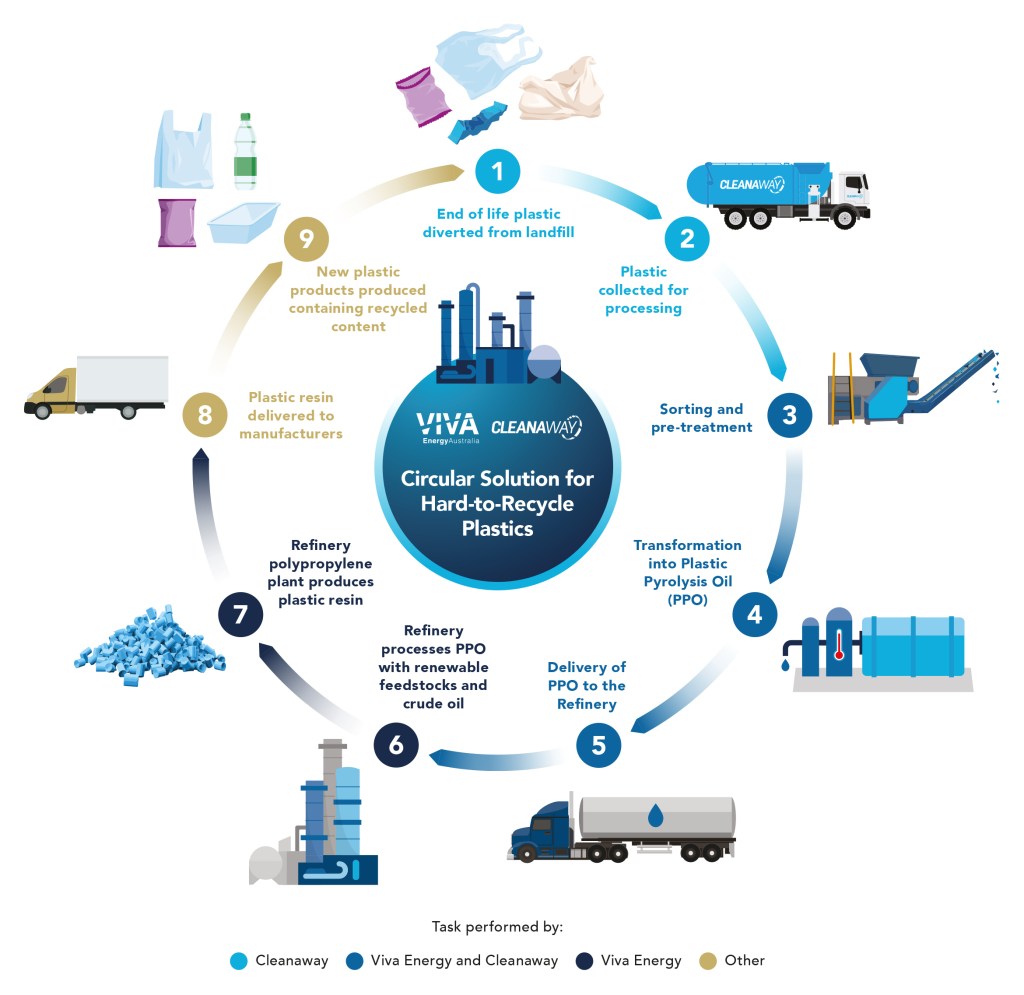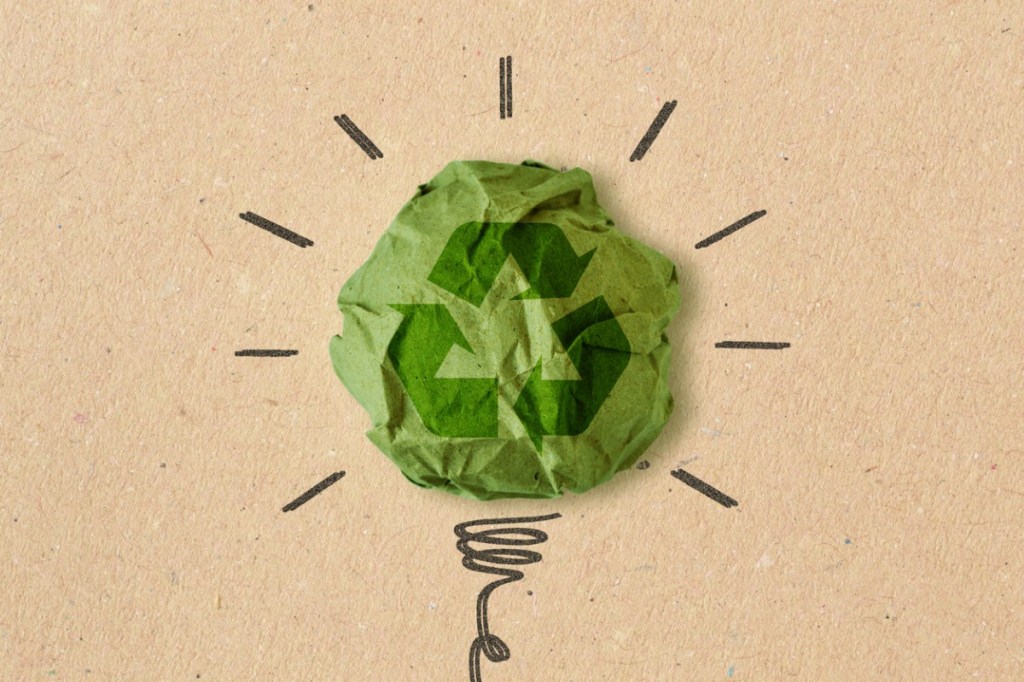Viva Energy and Cleanaway have entered into an agreement to undertake a prefeasibility assessment for a plastics recycling facility to convert waste plastic into plastic pyrolysis oil (PPO) for co-processing at Viva Energy’s Geelong Refinery.
Recycled plastic manufactured through this process would have identical properties to virgin resin, opening the potential for Australian food manufacturers to use recycled packaging.
The partners want to provide a sustainable soft-plastics solution for food manufacturers and packaging specialists seeking to cater to the growing environmentally conscious market, as well as households and businesses who want a landfill-diversion option.

The project could provide an important solution for food manufacturers and packaging specialists to meet their obligations under the Australian Government’s new recycling regulatory scheme that is expected to be in place by the end of 2025. Implementation of the packaging reform with mandatory obligations and a product-stewardship scheme for soft plastics are critical to enable this investment.
This project follows Viva Energy’s announcement in May last year that it intends to introduce co-processing at its Geelong Refinery as part of its plans to transform the site into a broader energy hub.
Co-processing will allow the refinery to demonstrate the important role it will play in plastic recycling while also reducing the facility’s carbon footprint.
For Cleanaway, pursuing this opportunity is part of its broader focus on providing low-carbon, high circularity solutions that reduce the need for virgin resources and lift Australia’s recycling rates.
Assessing the potential for a circular solution for soft and other hard-to-recycle plastics follows Cleanaway’s recent investment in three Circular Plastics Australia recycling plants in Melbourne and Albury, which process PET beverage bottles, milk bottles and other plastic packaging to create food and non-food grade resins to make new packaging.
Viva Energy Chief Business Development and Sustainability Officer Lachlan Pfeiffer said the project offers a significant advance in addressing Australia’s plastic waste issue.
“For Australia to have the ability to recycle its own plastic – a true circular economy – we need to have a facility like this to convert waste plastic to pyrolysis oil on a commercial scale,” Pfeiffer said.
“If feasible, over time it will support a market for plastic collection and processing while also providing the pyrolysis oil we need to allow the refinery to produce recycled food-grade plastic. It will be a true end-to-end solution for manufacturers.”
Pfeiffer says that the strategic alliance forms an exciting foundation on which to pursue a circular solution for soft plastics.
“It brings together Cleanaway’s experience and strategic infrastructure in the waste collection and processing sector, with the processing capability of Viva Energy’s refinery and polypropylene plant.”
Cleanaway Executive General Manager, Strategy, Mergers & Acquisitions, Frank Lintvelt said Cleanaway is looking forward to leveraging its experience piloting new collection methods for soft plastics alongside Viva Energy’s refining capability.
“An end-to-end circular solution for soft plastics is desired by many of our customers, consumers and governments. We are keen to progress this early-stage planning work, so that once we have a federally harmonised policy framework for plastic packaging and mandatory obligations for packaging design, recovery, and recycled content – together, we can provide a circular plastic packaging solution in Australia,” said Lintvelt.
To stay up to date on the latest industry headlines, sign up to the C&I e-newsletter.

